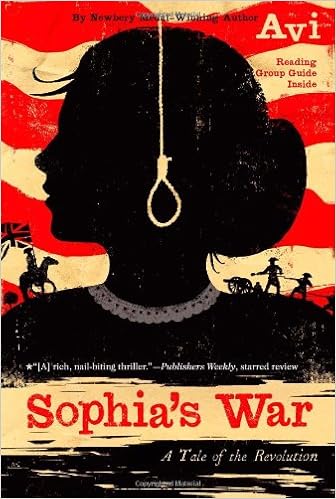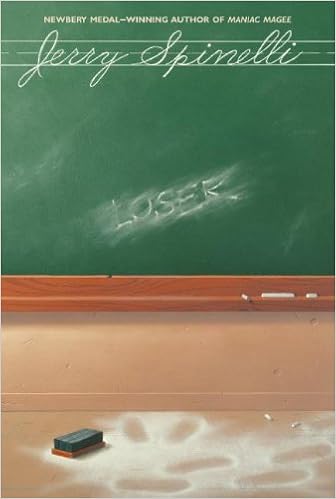I'm a big fan of the read aloud - it clearly was a must-do when I taught primary grades. But this last year, my first in 5th grade, I realized the value of a daily read aloud even for the "big kids". Those wonderful little souls looked forward to our read aloud time after lunch every day. Not only did it give them a chance to defrag from the drama of the lunchtime playground, but we loved to spend that time discussing books we'd read.
Today, on the last day of school, I'd like to share what we read this year, in order from August to May.
1. Frindle, by Andrew Clements
Frindle was recommended by a teacher blog, and I'm ashamed to say I don't remember which one. It was the perfect start to the school year. It let my students know that I approve of creativity, and it prompted amazing discussions about words and how they are developed. It also got us talking about the relationship of students and teachers. We all got to know each other better as a result.
2. The School Story, by Andrew Clements
I capitalized on our love of Frindle by teaching the kids about using favorite authors to guide books choices. "If you liked Andrew Clements, let's try some more of his books!" I told the class. We chose The School Story together, and I admit I went into it sight unseen. It had some powerful themes of friendship and love of family that went a long way in my class. It also helped that we finished it right around the time the kids were publishing their first writer's workshop narratives. They had more patience for the process because of what they learned about the publishing world in The School Story.
3. Loser, by Jerry Spinelli
Loser was recommended to me by my 5th grade colleague. We were both new to the grade this year, and we really helped each other out. As she read the book to her class and filled me in on the plot, I knew my kids needed to hear this book. We had the most valuable to discussions about sweet Zinkoff and his naive independence. And it taught many of the kids to have more tolerance of kids who just don't fit the mold set by the "popular" kids. We referred to this book all year in social discussions. I may start the year with this book next time around.
4. Blood on the River, by Elise Carbone
Another colleague recommended this one. Just. Wow. This was my favorite book that we read all year. If there's a better book about the Jamestown colony, I haven't heard of it. We absolutely loved this book - the kiddos were hanging on my every word, and the crossover into social studies was fantastic. The kiddos became so emotionally invested in this book that the day I finished it was probably the worst day of the school year. When we realized we weren't going to "see" these characters anymore, we all felt... flat. As one of my boys said, "How can people who lived 400 years ago seem like they could walk into our class and be friends with us?" And I felt the same way! (I am now publicly admitting that I had a dead-guy crush on Captain John Smith during this book, and life just wasn't the same without him!)
5. Sophia's War, by Avi

Blood on the River was such a huge success that I decided to stay with another US History book after Winter Break. Sophia's War is a book largely about a fictional girl's involvement in the treason of Benedict Arnold. This one had rave reviews on Amazon, so my colleague and I went for it. But we both kinda gave it Two Thumbs Meh. It was long, parts of it seemed to drag on forever, and we were both so impatient with the main character. However, the students in both classes said that they loved it, and they couldn't stop talking about it. What do teachers know, anyway? I did like the text-to-text comparisons we were able to do between the main characters of this book and Blood on the River. Plus, this book lent itself to a discussion of how history changes depending on who's writing it. And Sophia's ridiculous tweenager crush on a man twice her age ended up helping my kiddos figure out that 5th graders shouldn't really be "dating" anyone. So the drama that saved me was worth the read. =)
6. Johnny Tremain, by Esther Forbes
An oldie, but a goodie! I read this one simply because I'd read it as a child, and Sophia's War really drove me nuts. This book tells the story of a young silversmith apprentice who becomes involved with the Sons of Liberty, the Midnight Ride, the Boston Tea Party, and the battle of Lexington and Concord. The kids loved it, I loved it, and it lent itself to great character debates. Rab Silsbee became a hero in my room. "Be Like Rab!" was a motto of ours for a while. I only wish I had read it before Sophia's War, because it does take place in an earlier time frame.
7. Streams to the River, River to the Sea, by Scott O'Dell
At the end of the year, I wanted to spend time with the Lewis and Clark expedition, and this was the only novel I could find that covered it. Sacagawea is the narrator, and I thought the story was so well told from her point of view. I know there is criticism of the book because there is no documented proof that she and Clark had any kind of special friendship - but I just explained this to the kids as the story went on. We had fun speculating whether or not it was true. And everything else seems to coincide with Clark's journals. We had many discussions about race relations in America in the early 1800s, and it was a powerful time for us. I was, however, rushed to finish the book by the end of the year, so we didn't get as much out of it as I think we might have. I'll plan a bit better for it next year!







